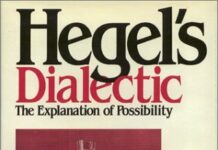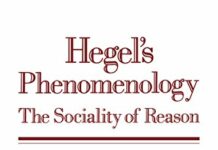
Ebook Info
- Published: 2002
- Number of pages: 394 pages
- Format: PDF
- File Size: 4.25 MB
- Authors: Terry Pinkard
Description
In the second half of the eighteenth century, German philosophy dominated European philosophy, changing the way Europeans and people all over the world conceived of themselves and thought about nature, religion, human history, politics, and the structure of the human mind. In this rich and wide-ranging book, Terry Pinkard interweaves the story of “Germany”–changing during this period from a loose collection of principalities into a newly-emerged nation with a distinctive culture–with an examination of the currents and complexities of its developing philosophical thought. He examines the dominant influence of Kant, with his revolutionary emphasis on “self-determination,” and traces this influence through the development of romanticism and idealism to the critiques of post-Kantian thinkers such as Schopenhauer and Kierkegaard. His book will interest a range of readers in the history of philosophy, cultural history and the history of ideas. Terry Pinkard is professor of Philosophy at Northwestern University and is the author of the acclaimed Hegel: A Biography (Cambridge, 2000). He is honorary Professor of the Philosophy Faculty of TÜbingen University, Germany and serves on the advisory board for the Zeitschrift fÜr Philosophique Forschung.
User’s Reviews
Editorial Reviews: Review “Pinkard does an incredible job of explaining Hegel’s strictly philosophical ideas and largely overcomes the barrier of Hegel’s notoriously obscure style.” The New York Times Book Review”…Pinkard offers a moving account of a precarious and harried life, interspersing it with lucid and not unduly long accounts of the main arguments of Hegel’s works….Mr. Pinkard has written engrossingly of a supreme instance of the life dedicated to thinking.” The Washington Times”Pinkard takes readers-carefully, succinctly and in a manner sensitive to the political and social ferment of the time-on a journey through the most important hundred years in philosophy since the Renaissance…In Pinkard’s hands, what could be just names come alive as men and ideas that have much to teach us about our own beliefs about how to live.” Publishers Weekly Advance Praise… “Terry Pinkard has given us a welcome, fresh look at the post-Kantian aftermath in nineeenth-century thought. German Philosophy 1760-1860: The Legacy of Idealism is that rare book that can serve as both a lucid, engaging introduction and trustworthy guide, as well as an original, insightful, important contribution to scholarship.” Robert Pippin, University of Chicago”[A]n important history of German idealism…. Recommended.” Choice”Throughout the study, Pinkard’s attention to historical detail is impressive; he presents a portrait of an entire century of German intellectual thought, which, to risk understatement, is no small task.” Philosophy Today, Elizabeth MillÂn-Zaibert Book Description The first comprehensive modern history of the origins and emergence of German philosophy. About the Author Terry Pinkard is Professor of Philosophy at Northwestern University. His most recent book is Hegel: A Biography (Cambridge, 2001). Read more
Reviews from Amazon users which were colected at the time this book was published on the website:
⭐Excellent chapters on Kant, Fichte, Schelling and Hegel. Plus as a bonus a nice summary of Kierkegaard’s ‘Either/Or’. This book is written by a Hegel scholar who is fortunately gifted, unlike Hegel, with a clear and concise even lucid writing style. I found this book very helpful. It is introductory yet advanced. Good for undergraduate philosophy majors who have had a class on Classical Modern Philosophy. And perhaps a fun quick read for academics.
⭐Professor Pinkard allows the reader insight not only on German Idealist Philosophy but the times in which these intellectuals lived. He forces those of us not in Philosophy to read slowly and thoughtfully. But the reward is insight on a period of European history that cannot be achieved without his insight. Thank you Professor for devoting your life to those times and those men.
⭐I have only read about 1/3 of the book . I am enjoying it very much. All aspects of the research and composition surpass my expectations. I am sure the remaining 2/3 will not disappoint.
⭐PInkard’s book is probably the most modern of the introductions to the period in that this interpretation is the onemost free of all of the metaphysical and epistemological focus that was so frequent in texts on German Idealism even up until the early 90s. Even Beiser’s excellent introduction to this period still maintains some threads to older interpretations, but he does make these explicit. PInkard’s text provides us with a unique narrative that links all of the texts together: the so-called “Kantian Paradox”. This paradox poses the question: if we choose to be self-legislating, what influenced us to make the choice to be self-legislating (and this something would have had to be an external influence). In contrast to Beiser, whose link is the question of how to prove the reality of the external world, Pinkard promotes freedom (self-legislation) to be the main challenge that the Idealists (and Romantics) tried to answer (although he does readily admit the myriad of other issues that drove them forward).His introduction to Kant is brief, being only 100 odd pages, but it contains some of the most lucid and insightful exegesis of Kant’s system in the English speaking world. I particularly like how he cast Kant, and Transcendental Idealism as a whole, not as an epistemological theory (what has come to be called ‘Weak Transcendental Idealism), but as a theory that poses the following thesis: nothing escapes the workings of reason (‘Strong Transcendental Idealism’). His discussion of the third critique, which he references throughout the book, shows the rarely emphasised insight that this work was the starting point for the departures and adaptations post-Kantians would instigate and develop.The weakest point in the book is the middle discussion on the Romantics, where Pinkard tries to cover a large amount of material within a very short amount of time. But even here both students and Professors can learn a great deal about the development of thought in the 1790’s and early 1800’s. The discussion of Hegel, of course, is incredibly insightful, and his non-metaphysical reading of Hegel truly justifies Hegel’s place as an important played in 20th Century philosophy.Overall this is a very good introduction to German Idealism for anyone interested in German Idealism, regardless of their place in academic life. Of course, with any topic as complex as this, extra reading is required, but Pinkard has given us a book that rightly deserves a place on every philosopher’s shelf. Its main benefit, as I mentioned above, is that it shows us the German Idealist free of the metaphysical baggage placed on them for the past 150 years, and gives us a picture of a period of history that could enlighten us immeasurably today.
⭐German philosophy 1760-1860 seems like a title bound for an obscure section of an academic library. While some historians or philosophers might have an interest because of their professions no one would seemingly read such a book by choice.This, however, is far from the truth. If you can imagine an era before Planck, before Einstein, before Schrodinger, before Watson and Crick you would be in an era that thought the greatest answers to human problems could be found in Kant, Hegel, Schilling and their fellow philosophers.Difficult to imagine, for sure, but this was an era in which Germany was the cultural capital of the world and the sometimes strained answers to questions of freedom, morality and government given by philosophers were debated and argued by professor and intellectual alike.Nobody wants to return to such a philosophic hegemony but it is interesting to see just how different the recent past was. All of this is brilliantly brought back to life by Terry Pinkard in this work.Beginning with Kant and tracing the problem of how man can both be free and legislate for himself a way of life dictated by reason, Pinkard describes how post-Kantians tried to solve this Kantian paradox. And while few are today interested in the solutions of Hegel or Kierkegaard, Pinkard is adept at showing their cultural influence to the current day.While many copies of this text may be gathering dust, it should be read by all those who want to learn about the cultures and ideas of the recent past. Couldn’t give a stronger recommendation to those with interests in these matters.
⭐The more I think about Terry Pinkard’s work, the more I am inclined to say that Idealism facilitated modernity’s exhaustion. Kant introduced his paradox: exactly how coherent is it to say that we are subject to the laws we legislate for ourselves? This was the problem that all of the philosophers after Kant dealt with.Perhaps one of Kant’s more interesting suggestions is found in his third critique:the experience of natural beauty gave us the indeterminate concept of the supersensible substrate of both nature and freedom. What is this substrate? Possibly the Absolute or something. And this is where Pinkard gives a summary of thinkers from Fichte to Schelling to Hegel.More attention is paid to Hegel, obviously, and while Pinkard does offer some interesting insights, it is not much of a thorough analysis. He does anticipate, even if he doesn’t say so, later moves by Heidegger and Gadamer: We are “thrown” into a social space and when we ask and give reasons for reasons, we are usually asking (and answering) questions that have already been supplied to us.All in all, it is a fine survey of German Idealism if at times it is a bit short. Interestingly, Pinkard’s account gives more attention to analytic philosophers than one would normally find in treatises on Idealism.
⭐Ausgehend von einer kompakten Einführung in die Grundprobleme der Kantischen Philosophie verfolgt der Autor die Weiterentwicklung ihrer Leitmotive von den unmittelbaren Reaktionen (Reinhold, Jacobi, Schulze) über die Frühromantik, die Protagonisten des deutschen Idealismus bis hin zu Kierkegaard und Schopenhauer. Das Verhältnis von Lesbarkeit und Komplexität ist gut gelungen, zumal in Anmerkungen immer wieder auf weiterführende Diskussionen und die dazugehörige Literatur verwiesen wird. Die historischen Kontextkapitel fallen eher knapp bemessen aus – im Mittelpunkt stehen klar die philosophischen Einzeldarstellungen. Wer eine gut lesbare Einführung sucht, die nichts ungebührlich vereinfacht, wird hier fündig. Menschen ganz ohne Erfahrung in spezifisch deutsch-philosophischer Akrobatik werden manches herausfordernd finden, Spezialisten das eine oder andere vermissen. So is das halt, auch mit gelungenen Überblickswerken.
⭐
Keywords
Free Download German Philosophy 1760-1860: The Legacy of Idealism in PDF format
German Philosophy 1760-1860: The Legacy of Idealism PDF Free Download
Download German Philosophy 1760-1860: The Legacy of Idealism 2002 PDF Free
German Philosophy 1760-1860: The Legacy of Idealism 2002 PDF Free Download
Download German Philosophy 1760-1860: The Legacy of Idealism PDF
Free Download Ebook German Philosophy 1760-1860: The Legacy of Idealism




